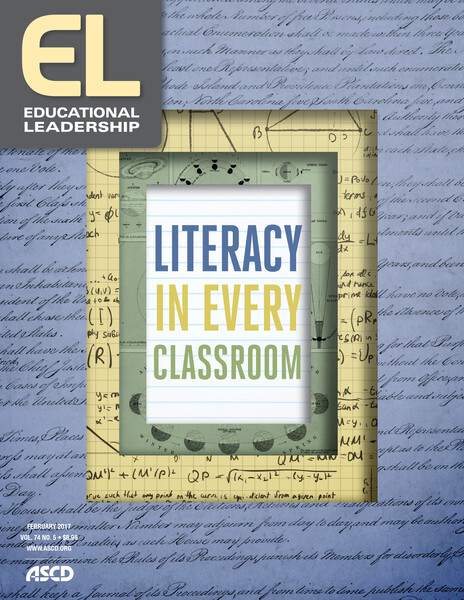A couple of years ago, on a reporting assignment, I had a memorable conversation with a 6th grade math teacher who worked at a school with a large population of English language learners and below-grade-level readers. He told me that, when his school first shifted to the Common Core, many of his students' scores on regular unit assessments took a precipitous drop.
The problem, he said, wasn't necessarily that they didn't have the requisite numeracy skills. Rather, it was that they didn't have the verbal proficiency to parse the word problems and prompts for explication that formed a central feature of the school's new curriculum.
To address the issue, this teacher decided to start incorporating literacy instruction into his math lessons. He worked with his students on close reading, annotating sentences, and explanatory writing. He set specific vocabulary goals for every lesson to help his students better understand key academic terms.
The impact was immediate: The students' math scores began to climb. And what was particularly interesting to him—and me—was that this turned out to be true not just for his ELLs and struggling readers. Even his students who were already strong in reading and math made sharp gains. In some way that this teacher hadn't fully expected, his focus on language had helped boost math learning across the board.
I thought of this conversation several times as my colleagues and I worked on the articles for this issue. Traditionally, schools have tended to segment literacy instruction into the domain of language arts and reading teachers, with the implication being that educators in other subjects need not get overly involved. But that dynamic appears to be changing. Concepts like "writing across the curriculum" and "content-area literacy" have gained prominence in K–12 education. Textual analysis, or close reading, is now commonly talked about outside of English classes.
A major reason for this shift, of course, is the Common Core's emphasis on informational texts and helping student use language more effectively across content areas. Then, too, there's the recognition that many students need more literacy training than they can get in language arts classes alone. But I also suspect that, like my math-teacher source, more educators are simply discovering—or rediscovering—that explicit literacy-based strategies can deepen students' understanding of content-area subjects.
That message is conveyed in a variety of compelling ways by the authors in this issue, a group that includes a number of the most prominent names in literacy instruction. The pieces highlight (among other topics) the power of comprehension-building strategies to give students a heightened grasp of complex texts and topics (Lemov, Buehl); the role of writing in helping students refine and deepen their thinking (Gallagher, Bambrick-Santoyo and Chiger); the use of argumentation and discussion skills in expanding disciplinary understanding (Reisman, Ehrenworth); and the probing of vocabulary as a pathway into specialized knowledge and contexts (Rasinski and colleagues).
As Timothy Shanahan and Cynthia Shanahan write in their helpful FAQs on disciplinary literacy, "To meaningfully study a discipline, students must understand how literacy is used in that discipline and how they themselves can create and critique knowledge in that discipline." That, in effect, is the journey highlighted by all the articles in this issue—just as it was the one my math-teacher friend and his students had started on.
And speaking of starting on journeys, you may have noticed that this column has a new voice—and face. Let me introduce myself more formally: As I write, I've been the new Editor in Chief of Educational Leadership for almost two months, having taken over for the incomparable Marge Scherer, who retired in the fall. Previously, I was an editor with Education Week for 16 years, most recently covering teaching issues and working with educator-writers. I was the founding editor of the Education Week Teacher site.
As my new colleagues would tell you, I'm still very much in the process of learning my new role—but I am thrilled to be part of a publication that is so influential in K–12 education and so committed to both practitioner voice and editorial quality. I look forward to working with my ASCD colleagues and educators and writers across the country (and beyond) in creating Educational Leadership's next great chapter. I hope you will join us on this journey as well.







